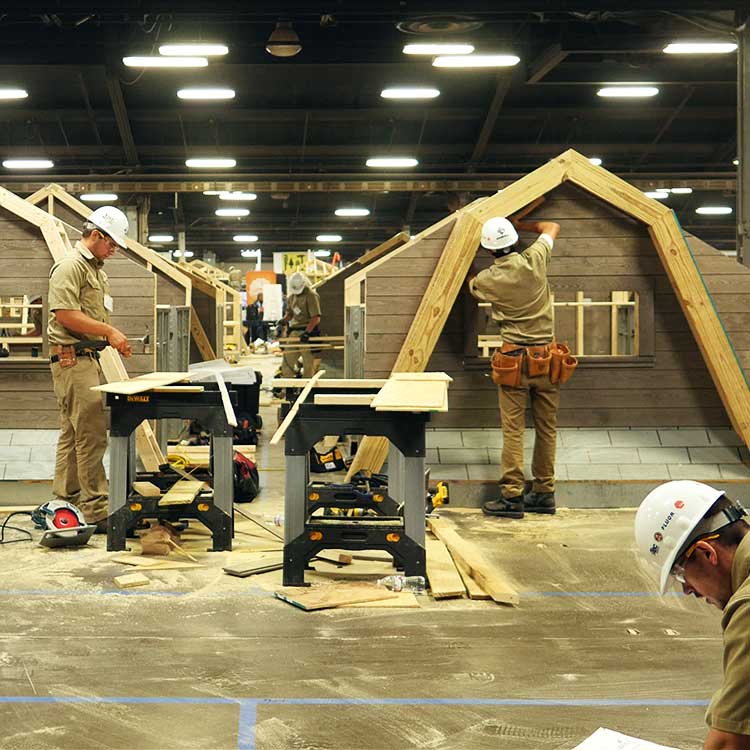Menu
Education ultimately should prepare students and young people for adulthood and the responsibilities that come with it. No aspect of the current United States school system accomplishes this more directly and effectively than career and technical education (CTE).

Rather than teach through only lectures, textbooks and traditional academia, CTE gets right to the point and teaches students how to accomplish real tasks for real jobs through hands-on learning. Training for in-demand craft careers such as carpentry and welding don’t need to be bogged down by theoretical discussions; CTE focuses on the actual hard and soft skills students will need to build a successful career and life.
Career and technical education has both anecdotal and scientific proof of its effectiveness. The teaching styles used by CTE help students retain information and remain attentive and engaged. CTE gives students the opportunity to experiment in different fields in a low-pressure environment. Students in CTE programs are also much more likely to graduate high school than non-CTE students.
The impact of career and technical education is clearly felt by the students who have gone through these programs.
Skyler Niemann took a variety of different CTE classes at his high school, including plumbing and electrical courses.
“The electrical unit was kind of fun,” Niemann said. “You got to hook stuff up and make things work on a circuit and that really interested me.”
Now a student at Mitchell Tech in Mitchell, SD, Niemann is studying to become a professional electrician with the goal of becoming a journeyman and earning a contractor’s license to open his own business.
Like Niemann, Taylor McMasters plans to acquire a contractor’s license.
A recent graduate of Savannah Technical College, McMasters said the CTE school and his professor, program director Dan Krautheimer, did “very, very well” with training him for the workforce.
When preparing for his postsecondary education, McMasters considered accepting a full-ride scholarship for music. However, even with the scholarship, he realized there would be no way to pay off his other expenses with the degree he would earn. By pursuing construction through technical school, McMasters says he has as much disposable income as many friends who went for a four-year degree.
Through his career and technical education, McMasters learned the sophisticated skills he needs to overcome some of the unique challenges that arise on a construction job site.
“You have to think on your feet, you have to be smart with math, and you get to work with your hands. It’s a great profession.”
Career and technical education courses in her high school allowed Lindsey Schmelz to find out what she liked and didn’t like. After taking a drafting class, she decided she didn’t want to sit at a computer all day and wanted to move to the other side to participate more in the building of things.
Schmelz thinks her experience doing construction through CTE programs will help her as she studies construction management in college.
“A lot of people go to college for construction management, but they don’t know what they’re managing,” she said. “I want to know what I’m doing.”